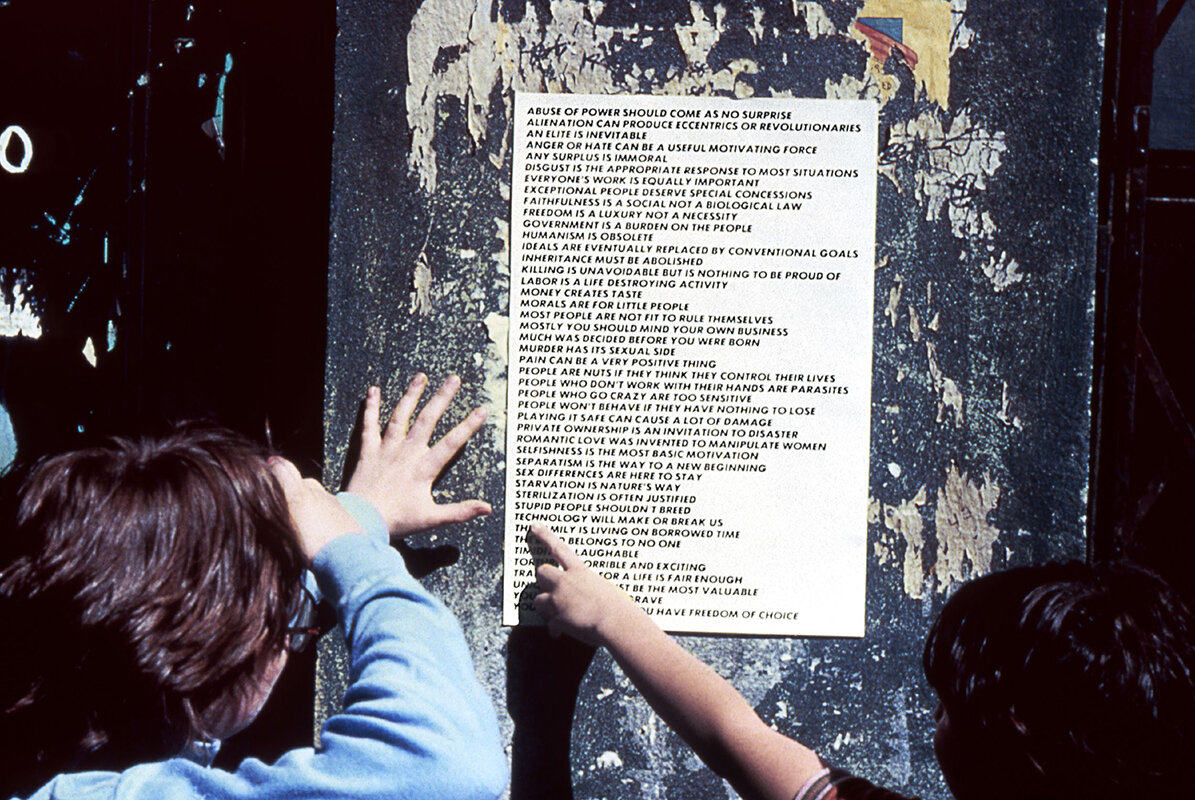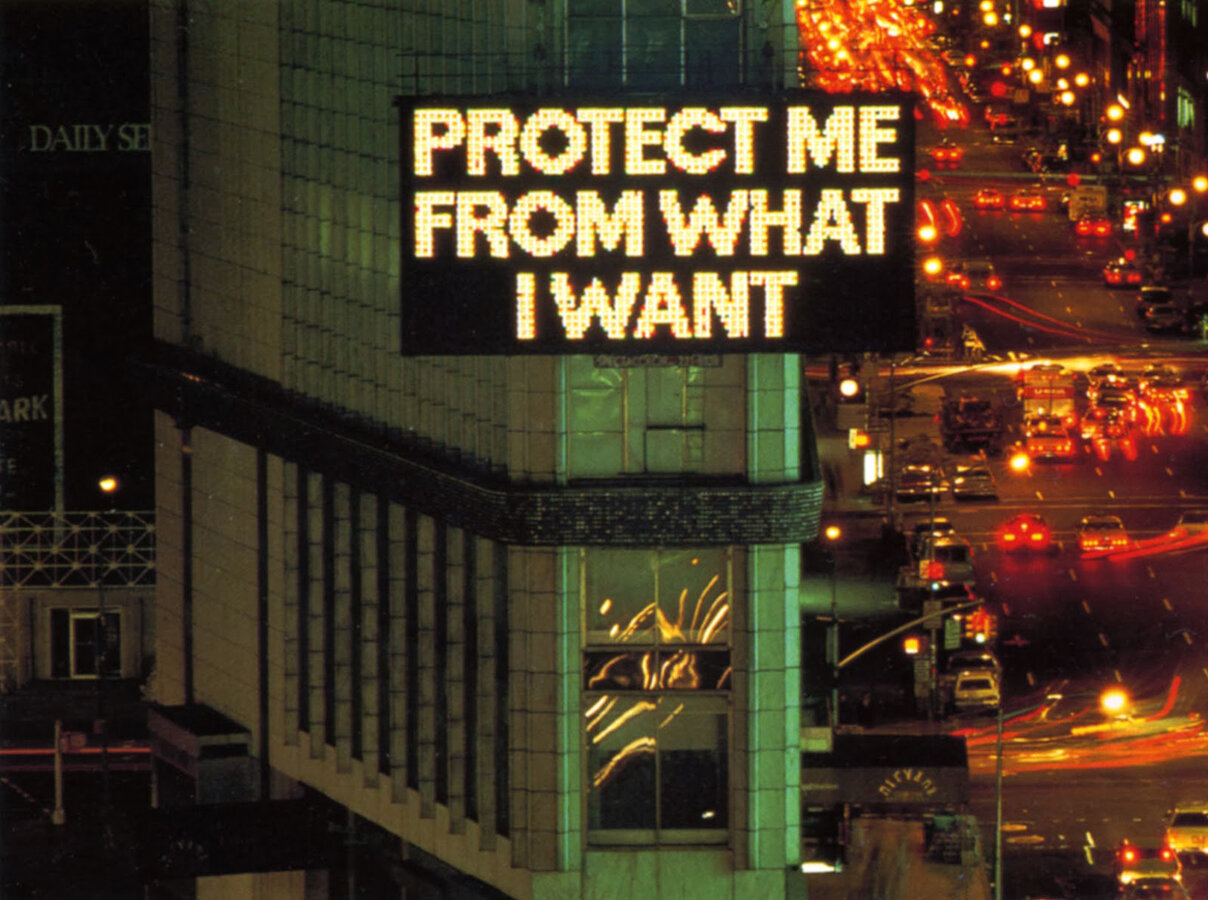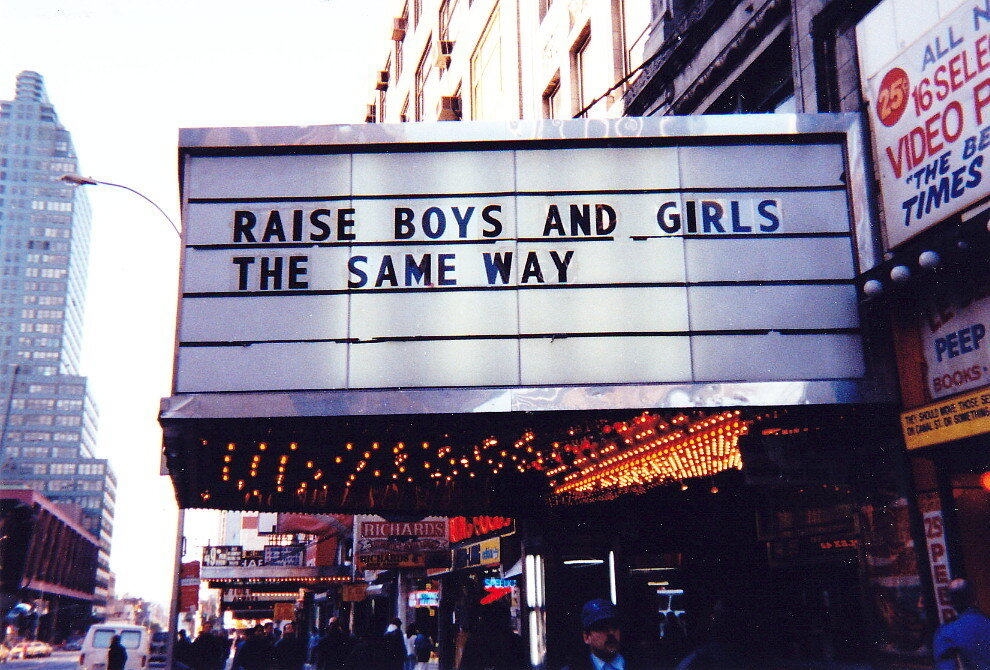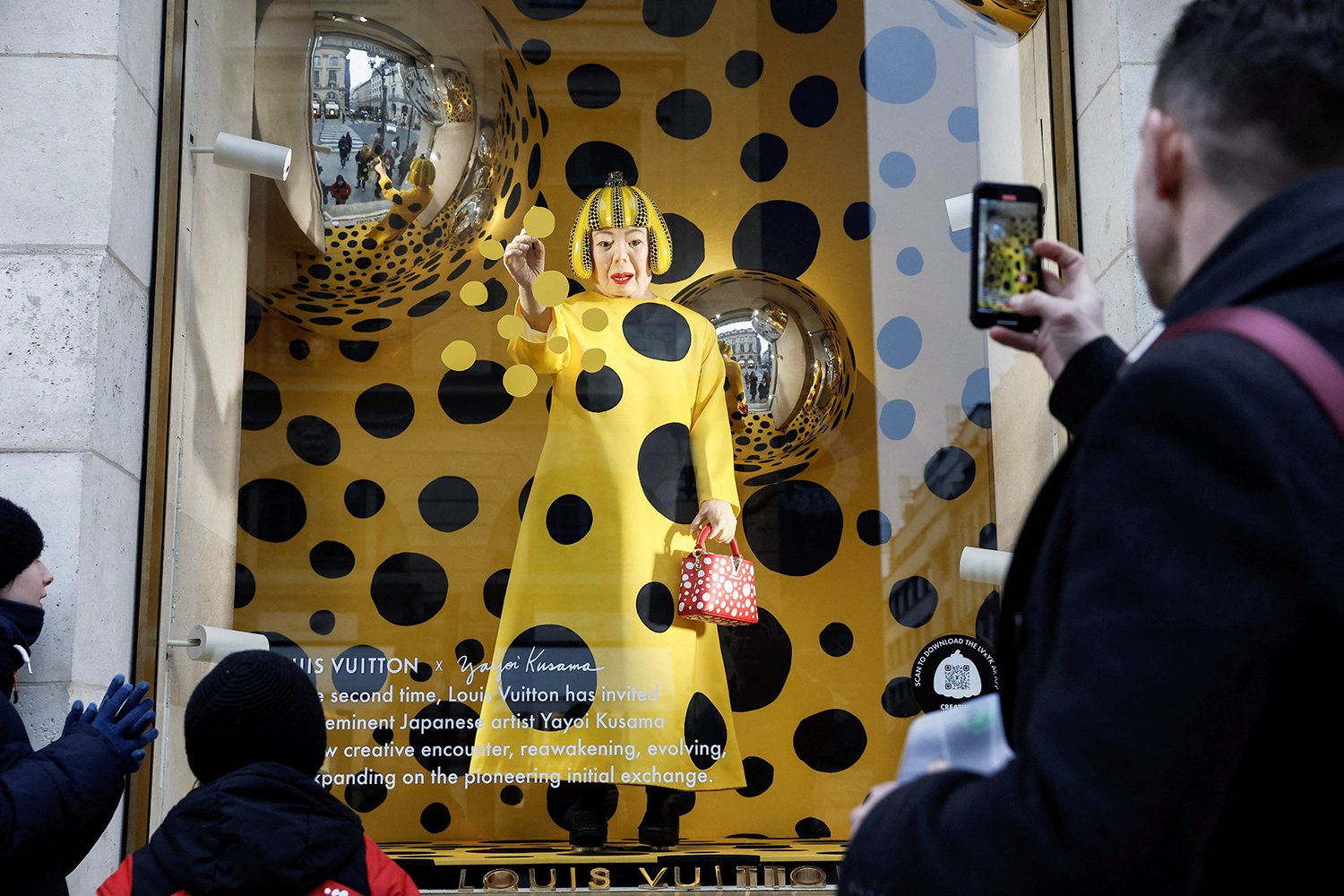About Jenny Holzer: Artist, Poet, Curator

Holzer creates and curates text to invade public space, blurring the lines between opinion, truth, and commodity.
Xenon for Berlin, light projection, Museumshöfe Berlin, Berlin, Germany (2001). 2001 Jenny Holzer, member Artists Rights Society (ARS), NY. Photo: Attilio Maranzano and via Times Union.
Today is the 71st birthday of American conceptual artist Jenny Holzer. She was born in Gallipolis, Ohio, in 1950. Much of Holzer’s work occupies public space, in the form of benches, signage and projections. Her confrontational style is self-assured and matter-of-fact. Holzer’s pithy use of language anticipated the text posts of social media.
Formally trained in painting, Holzer instead chose to utilize the medium of text. she explains, “An image can be ambiguous. A text can deliver a very specific image or content that makes you react.”
About her artistic career, Holzer admits, “I was in such a hurry that I gave up on painting for 25 or so years. So, in desperation I went to text as a way to carry content”.
Holzer began her series of one-liner Truisms in the late 1970s, posting them around the streets of New York City. The provocative declarations — such as “Money Creates Taste” or “Abuse of Power Should Come As No Surprise” — invite viewers to reexamine their own values. Holzer later adopted a longer format in Inflammatory Essays.
At the 1990 Venice Biennale, Holzer was the first woman to represent the American Pavilion. The LED signs on display featured her own writing about motherhood, earning her the prestigious Golden Lion award. Later in the 90s, Holzer began to utilize light projection, combining text with architecture.
Holzer is often compared to her contemporary Barbara Kruger, another feminist artist whose work focuses on text. For the 2014 book Urban Theater: New York Art in the 1980s, Andrea Karnes, curator at the Fort Worth Modern wrote, “Media-savvy Holzer and Kruger synthesize the visually packed world around them, operating within the blended languages of postmodernism, politics, psychoanalysis, feminism, consumerism, television, and pop culture to create works that “advertise” stereotypes, plain truths, mock political rhetoric, and clichés.”
Since the 90s, Holzer has introduced the writing of others into her work, such as Walt Whitman and Anna Świrszczyńska. Today, Holzer focuses mostly on curation. She notes, “It’s hard to write, so I don’t do it anymore.”
One of Holzer’s collaborators, poet Henri Cole, writes, “Because Holzer now thinks of herself mostly as a reader, rather than a writer, she is happiest reimagining space with light, color, and form suffusing it, while a powerful beam is projecting poetry into the night—poetry with all its paradoxes, ironies, contradictions, understatements, and devastating truths.”












